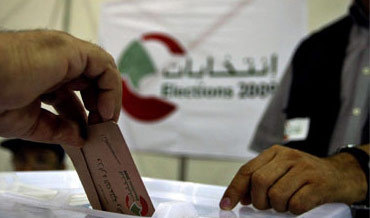
The recently held elections in Lebanon carried several controversial elements – in both how they were organized and their results – but validated one assumption: the absence of a public will to reform human rights policies.
Lebanon has been into successive and often concurrent political, security, economic and social crisis since it became independent in 1943. Even the short periods of political and security stability (1952-1956, 1960-1966, 1992-2004) witnessed by the country did not lead to significant improvements in human rights policies. Since 1943, Lebanon was ruled, unilaterally or collaboratively, by a broad range of political actors affiliated to all ideological, partisan, political, sectarian and ethnic mainstreams. None of these actors could establish a sound public policy making process nor to induce significant improvements in the existing policies, including those related to human rights. Moreover, all these actors were either involved in gross violations of rights, corruption and/or showed legendary incompetence. Even when competent and well-intentioned individuals coincidentally occupied government positions, they were unable to trigger a sustainable change in public policies and political behavior. Their achievements proved to be short-lived and mostly reversible. To understand the reasons underlying this dismaying reality, it is important to look carefully at several factors, many of which can be validated by the recent elections.
Despite some exceptions, one can observe the deviation of social paradigms reflecting in a widespread human rights violations and corruption that undermine almost all sectors: public sector, private sector, judiciary, media, services (health sector, education…), civil society organizations. Moreover, many Lebanese praise the perpetrators as “true leaders”, “brave”, “or even “heroic” in some cases. Entire generations have been raised according to non-human rights precepts, making today’s society one of the most discriminatory, cynical and opportunistic, focused only on perceived short-term interests. The importance of “values”, “social good” and “public interest” have regressed to the lowest levels over the years.
Despite the prevailing perception that Lebanese are open minded, highly educated and competent, multilingual, entrepreneurs…etc., the reality is that this overstated self-confidence is denied by the realities on the ground. This is mostly true when it comes to the extent to which Lebanon’s public policies are rights oriented, relevant, impactful and viable. The paradox of a highly self-aware, skilled, educated and competent society accepting this level of low respect of human rights, public services and public-sector performance indicates that the “superiority” self-attributed by some Lebanese is nothing but a myth. A lot of the inappropriate public policies are caused primarily by a lack of competence rather than other factors.
Most Lebanese perceive the “State” as a “jackpot machine” rather than a proponent and regulator of public policies. Several factors have contributed to a significant disengagement of the public from monitoring respect for human rights, public policies and performance as well as contributing to setting the agendas of public policies. This has been aggravated by the inefficiency of most civil society organizations in shaping and pushing for better public policies. At every attempt to reform a sector or improve the policy framework pertaining to an issue, the politicians managed to picture such an attempt as an “existential war” waged by the “others” for the purpose of “political elimination”. In most of the cases, civil society organizations were not successful to build a constituency for change.
Even when very few actors had the intention to induce a positive change, they were not able to build alliances due to political polarization, trivial competition, strive for visibility or other factors. The importance of coalitions was never taken to its right value in the public sphere in Lebanon.
Last but not least, most of the human rights and reform initiatives are funded by international donors. Such funding comes with time and political constraints. Only unrestricted indigenous funding can unlock the potential actors willing to work on reform initiatives since these require long term approaches that international funders cannot commit to, given their funding cycles. Other factors such as the perception of international funding in some communities also played against the success of the very few funded initiatives.
In conclusion, the recent elections validated the assumption that reforming public policies to become more human rights friendly requires working systematically on the deviant social paradigms, building the deficient capacities of the local actors, mobilizing the public opinion by building a broader constituency for human rights reform, a better understanding and engagement with the Lebanese policy making cycle, building purposeful and result oriented alliances and encouraging indigenous funding for human rights initiatives.
The views, opinions, findings, and conclusions or recommendations expressed in this article are strictly those of the author. They do not necessarily reflect the views of ALEF act for human rights or the professional or associative affiliations of the author.
